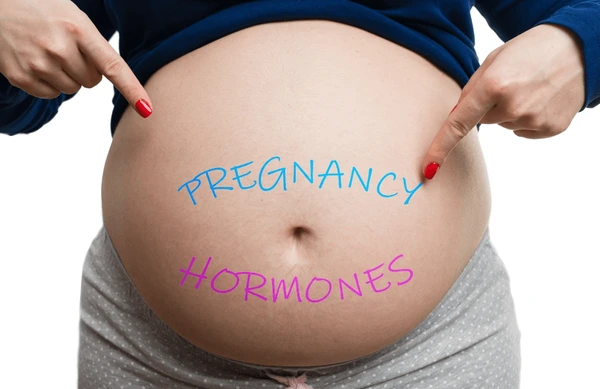-
Ganesh Talkies, Kolkata
Ganesh Talkies, Kolkata

Curious how pregnancy hormones affect women’s body health? Learn what changes to expect and when to consult a reputed gynecologist for safe guidance
Pregnancy is a remarkable journey, but it also brings dramatic shifts in a woman’s body. Much of this transformation is influenced by pregnancy hormones. These chemical messengers regulate almost every aspect of the process— from sustaining the pregnancy to preparing the body for childbirth and breastfeeding.
Understanding how pregnancy hormones affect women’s body health not only helps expectant mothers prepare physically but also provides reassurance during unexpected changes. With the right medical guidance, these changes can be managed for a healthier pregnancy and smoother postpartum recovery.

Hormones act as the body’s internal communication system. During pregnancy, several hormones surge to:
These hormonal shifts are essential, but they also explain why women may experience mood swings, nausea, fatigue, or even glowing skin.

Hormones don’t just shape the body—they also influence mood. Many women experience:
Learning to manage these changes with mindfulness, light exercise, or professional counseling can make the emotional journey smoother.

While most hormonal changes normalize after delivery, some effects can last longer:
This is why it’s important to stay connected with healthcare providers even after childbirth.
Pregnancy is deeply personal, and not every woman experiences the same hormonal effects. Professional medical supervision ensures that unusual symptoms—such as extreme fatigue, severe pain, or abnormal bleeding—are not overlooked. Consulting the best lady gynecologist in Kolkata can help women receive personalized care tailored to their body’s unique responses.

Q1. Are mood swings normal during pregnancy?
Yes, mood swings are common due to rising estrogen and progesterone. They usually stabilize after the first trimester.
Q2. Why do some women feel extreme fatigue early in pregnancy?
High levels of progesterone relax the body, leading to tiredness and drowsiness.
Q3. Do pregnancy hormones affect hair and skin?
Yes, increased estrogen may lead to thicker hair and glowing skin, but some women also experience pigmentation or acne.
Q4. How long do hormonal changes last after delivery?
Most hormone levels return to normal within 6–8 weeks postpartum, though breastfeeding can prolong certain changes.
Q5. Can lifestyle changes ease hormonal side effects?
Yes, balanced nutrition, exercise, and stress management techniques greatly reduce discomfort caused by hormone fluctuations.
Pregnancy hormones are powerful allies that shape both the mother’s and the baby’s well-being. While they can cause unexpected changes, they also highlight the body’s remarkable ability to nurture life. By understanding these shifts and seeking timely medical support from trusted experts such as Dr. Megha Khanna, women can embrace pregnancy with confidence and care.